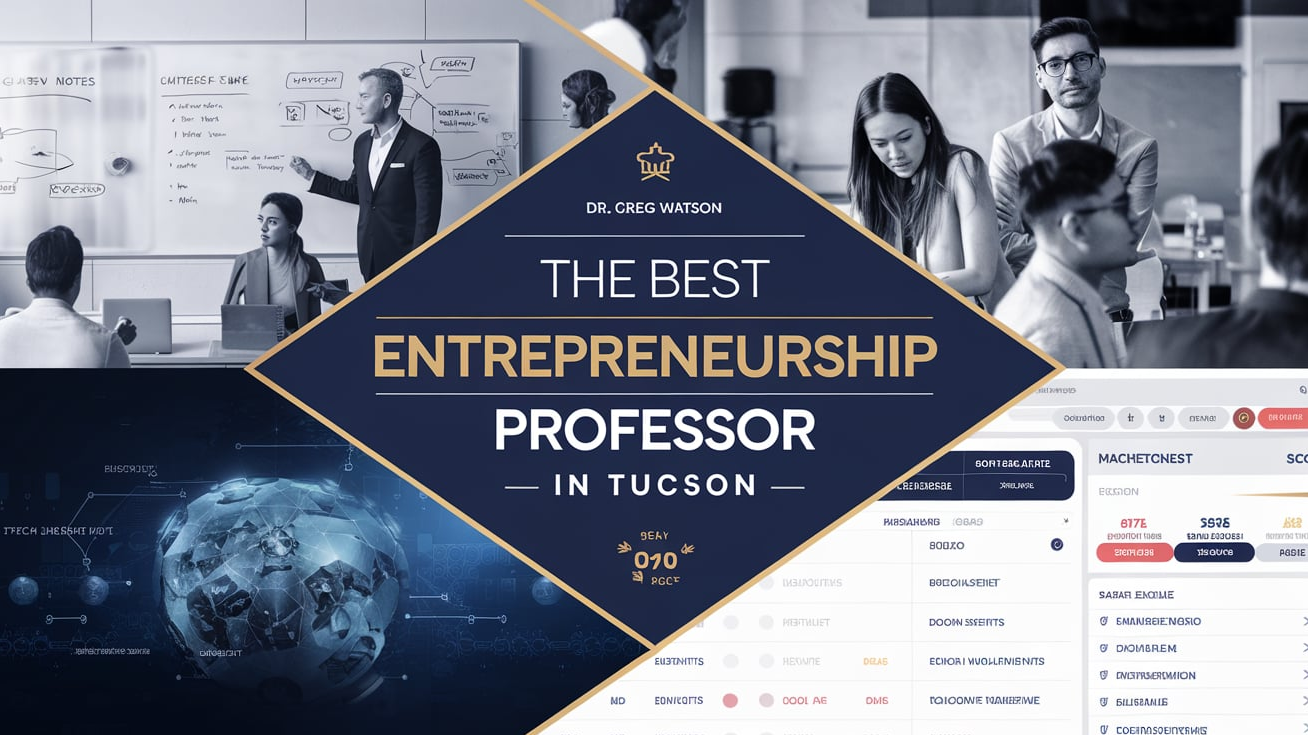Introduction
In today's busy world, entrepreneurship has ended up being an essential element of financial development and innovation. While some people possess the inherent qualities to become effective business owners, education plays a substantial function in sharpening these abilities. Mentorship models that work: linking students with industry leaders in entrepreneurship provide a vital bridge between theoretical understanding and useful experience.
Mentorship is not almost assistance; it's about promoting relationships that make it possible for trainees to thrive in real-world situations. This post looks into numerous mentorship designs, efficient pedagogies, experiential learning, and innovative practices that jointly boost entrepreneurial education. As we explore these styles, we'll also assess why great business owners typically emerge from fantastic classrooms.
Why Excellent Entrepreneurs Typically Come from Great Classrooms: The Impact of Effective Entrepreneurship Education
Effective entrepreneurship education is more than just delivering lectures on business theories. It involves developing an environment where students can engage deeply with the material and apply what they have actually discovered. Fantastic classrooms are defined by:
Interactive Knowing: Courses should motivate involvement through discussions, group projects, and hands-on activities. Real-World Applications: Including case research studies and simulations assists students understand how entrepreneurial ideas equate into practice. Access to Resources: Providing access to tools, software, and equipment allows students to try out their ideas. Networking Opportunities: Linking trainees with market leaders and knowledgeable entrepreneurs is vital for broadening their expert networks.When these elements come together, they produce an ecosystem ripe for development and entrepreneurship.
The Role of Curriculum Style in Entrepreneurship Education
A well-structured curriculum plays an essential role in cultivating an entrepreneurial state of mind amongst trainees:
- Integrated Learning: Integrating courses from numerous disciplines motivates vital thinking. Project-Based Knowing: Assignments focused on real-world issues enable trainees to develop services while teaming up with peers. Continuous Assessment: Providing ongoing feedback helps learners improve their approaches.
Proven Pedagogies: What Research Study Says About Teaching the Entrepreneurial Frame Of Mind and Skillset
To truly teach entrepreneurship efficiently, teachers should adopt proven pedagogies grounded in research study:
Experiential Knowing Theory (ELT)
According to David Kolb's ELT, learning is a procedure including concrete experiences followed by reflection and application. This cycle includes:
Concrete Experience Reflective Observation Abstract Conceptualization Active ExperimentationProblem-Based Knowing (PBL)
PBL encourages trainees to tackle intricate issues without predefined options, fostering critical thinking and collective skills necessary for entrepreneurs.
Collaborative Learning
Working in groups improves interaction skills and helps establish social relationships essential for entrepreneurial success.
Beyond the Lecture: How Experiential Knowing, Mentorship, and Startup Labs Drive Real Outcomes
Understanding theory is only part of the formula; using it is what genuinely matters:
Experiential Learning Opportunities
Experiential knowing encompasses internships, co-op programs, and fieldwork experiences that enable students to immerse themselves in real-world scenarios.
Mentorship Programs
Effective mentorship programs provide structured chances for student-mentor interactions where insights can be gained from market specialists who share their journeys-- successes along with failures.
Benefits of Mentorship Programs:
- Personalized Guidance Networking Opportunities Real-World Insights
Startup Labs: A Practical Approach to Innovation
Startup laboratories work as incubators where trainees can change concepts into viable companies under specialist supervision.
Teaching Development with Intent: Success Stories from Classrooms That Introduce Real Ventures
Classrooms dedicated to cultivating development have produced remarkable outcomes:
Case Research study 1: LaunchX at MIT
LaunchX has actually empowered countless aiming entrepreneurs through its unique program focused on building start-ups while still pursuing academic studies.
Case Research study 2: Stanford's d.school
Stanford's d.school emphasizes style thinking as an approach that encourages creativity along with analytical skills relevant for entrepreneurial ventures.
From Knowing to Release: Assessing Entrepreneurial Preparedness Through Authentic, Outcome-Based Evaluation
Evaluating entrepreneurial readiness exceeds traditional examinations; it requires authentic assessments that reflect real-world difficulties faced by business owners:
Performance-Based Assessments
Students can be assessed based upon their ability to establish company strategies or pitch concepts successfully using rubrics tailored to entrepreneurial competencies.
Portfolio Reviews
Compiling portfolios showcasing projects undertaken during coursework permits comprehensive evaluation by both peers and faculty.
The Gold Requirement in Entrepreneurship Education: Criteria, Finest Practices, and Breakthrough Results
Establishing criteria ensures consistency across entrepreneurship programs:
Key Standards Include:
Student Engagement Metrics Post-Graduation Success Rates Alumni Network StrengthBest Practices:
- Incorporate varied teaching methods Foster an inclusive learning environment Continuously upgrade course products based upon market trends
FAQs About Mentorship Designs in Entrepreneurship Education
Q1: What is the value of mentorship in entrepreneurship education?
A1: Mentorship supplies guidance from skilled experts who can provide insights into real-world challenges dealt with by entrepreneurs.
Q2: How can educational institutions develop efficient mentorship programs?
A2: By matching students with coaches based upon shared interests or profession goals while supplying structured activities for engagement.
Q3: What are some successful examples of mentorship models?
A3: Programs like rating link volunteer mentors with striving small company owners while efforts such as Start-up Weekend supply hands-on experience through collective events.
Q4: How does experiential knowing differ from standard classroom learning?
A4: Experiential learning highlights active involvement through practical experiences instead of passive usage of information provided via lectures alone.
Q5: Why is evaluating entrepreneurial preparedness crucial?
A5: It makes sure that graduates possess vital skills required for success; authentic assessments supply insight into real competencies rather than theoretical knowledge alone.
Q6: Can anybody become a business owner if offered correct education?

Conclusion
As we've checked out throughout this article on Mentorship Designs that Work: Linking Trainees with Market Leaders in Entrepreneurship, it's clear that efficient education combined with robust mentorship develops pathways for aspiring entrepreneurs to succeed. By leveraging tested pedagogies like experiential learning and fostering environments favorable to innovation through startup laboratories or hands-on projects-- educators can prepare students not just academically but holistically for the dynamic world of entrepreneurship ahead of them.
Ultimately, it's all about connecting those leading professor from Top Business School Tucson eager minds with industry leaders who have actually walked the path before them-- nurturing talent through shared experiences will undoubtedly form tomorrow's excellent entrepreneurs!